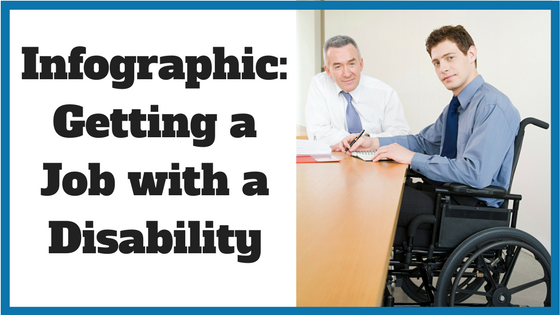Infographic: Getting a Job with a Disability
It can be more difficult for people with disabilities to secure employment than it is for able-bodied folks, with much research underlining this observation. Eurostat calculated that less than 48% of adults with a disability are working full time, almost 20% lower than the employment rate of able-bodied people.
Why is it that disabled job seekers find it harder to be employed? It could be attributed to numerous factors: the candidate might lack the self-confidence to sell himself/herself for vacancies, employers could be reluctant to hire someone who may need to frequently take sudden sick leave or maybe the job specifications preclude a person with a certain disability from doing the job.
Should disabled jobseekers notify employers of their disability?
I have seen from my own experiences the additional hurdles that disabled job seekers are forced to overcome if they are to secure employment. For most people, turning up to the interview is the easy part. For a candidate with a physical disability, simply getting to the interview location can be a tiring challenge. That’s why a disabled candidate is best advised to inform the employer of their disability, as the employer would almost certainly be willing and able to make alternative arrangements. If the candidate withholds their disability and, through no fault of their own, turns up late for the interview, their chances of getting the job are needlessly sunk.
While a disabled candidate should tell an employer about their disability, it would help a whole lot to convince the employer that the disability has not held them back in life. Talk about how obstacles can be overcome (giving examples from past experiences is a major help here) instead of expressing fear over how difficult the job could be.
This infographic from Burning Nights provides some great pointers for disabled jobseekers on how to look for jobs that they could not just do, but perform excellently.

About the Author Victoria Abbott-Fleming
Victoria Abbott-Fleming is the founder of Burning Nights, a CRPS awareness charity based in the UK. She suffers from CRPS, a rare medical condition which causes sharp, burning sensations in the body that are incredibly painful. She took it upon herself to set up a charity to promote awareness of the condition and to provide a support platform for people living with CRPS to discuss their experiences with a community of like-minded others. Connect with Victoria on Twitter, Facebook, LinkedIn and Google+r


